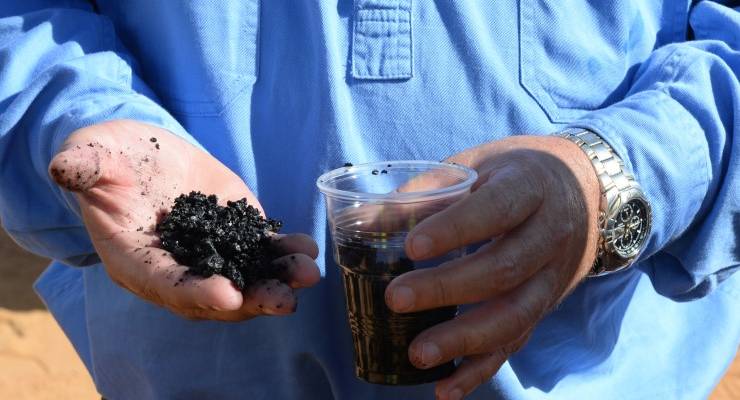
The New South Wales government tried to stop Scott Morrison from putting Santos’ controversial Narrabri gas project on a list of fast-tracked gas projects for fear it would undermine public trust.
Emails between NSW and the Department of the Prime Minister and Cabinet (PM&C) released under the Freedom of Information Act reveal NSW was concerned about the perception it would create given its Independent Planning Commission (IPC) was yet to decide whether to approve the project.
The emails back up everything we knew about the project: that political forces and corporate interests made it inevitable from day one. But it also paints a picture of a federal government happy to disregard due process and deeply committed to keeping things secret.
What the emails say
The emails show the NSW government was concerned the project would make the IPC process look “pre-determined” and would “undermine public trust in the process”.
The PM&C disagreed: “I’m not sure inclusion in the major projects list materially alters the public perception of the project being supported by both governments as a priority.”
At the time the government was putting enormous pressure on the NSW IPC to endorse the project. It was held up as the central pillar to its so-called gas-led recovery that was going to help Australia emerge from the coronavirus pandemic.
Before it was approved, both the prime minister and Energy Minister Angus Taylor held it up as the country’s saviour, and The Daily Telegraph ran story after story about gas shortages and the need for the “historical” project.
More evidence that FOI is a joke
What the emails also tell us is that Australia’s FOI system is broken. It took the environment charity Australian Conservation Foundation seven months to get access to the emails after a drawn-out battle in the Administrative Appeals Tribunal.
“The fact that the minister eventually released all of the documents only once ACF took this case to the AAT shows the FOI system is not working in the public interest,” Jolene Elberth, an ACF campaigner, said.
Powerful connections
Santos has a history of getting what it wants. It has a vast network of political operators that has allowed it to tap into high-ranking decision-makers. It also spends a lot of money lobbying and has access to government ministers.
A report by UK think tank InfluenceMap found the company was the second most powerful corporation blocking climate action in Australia, after BHP. Recently it has been a central player in the gas industry’s narrative of gas (a fossil fuel) as a transition fuel to net zero emissions.








A couple of decades ago National Party members piled into a little-known company called Eastern Star Gas, and Nationals such as Barnaby Joyce became significant landholders around the Liverpool Plains.
It was Eastern Star that did the initial exploration of what’s now Santos’s Narrabri project, retired Deputy PM John Anderson was the chairman of Eastern Star when Santos took it over.
Mind you, as Ann Davies reported in the SMH of 25 May 2015 (https://www.smh.com.au/national/nsw/csg-industry-hires-wellconnected-staffers-20150515-gh2rg3.html), it wasn’t just LNP luminaries like Anderson and Mark Vaile; Greg Combet and Martin Ferguson – former opponents of CSG – were in on the joke as well.